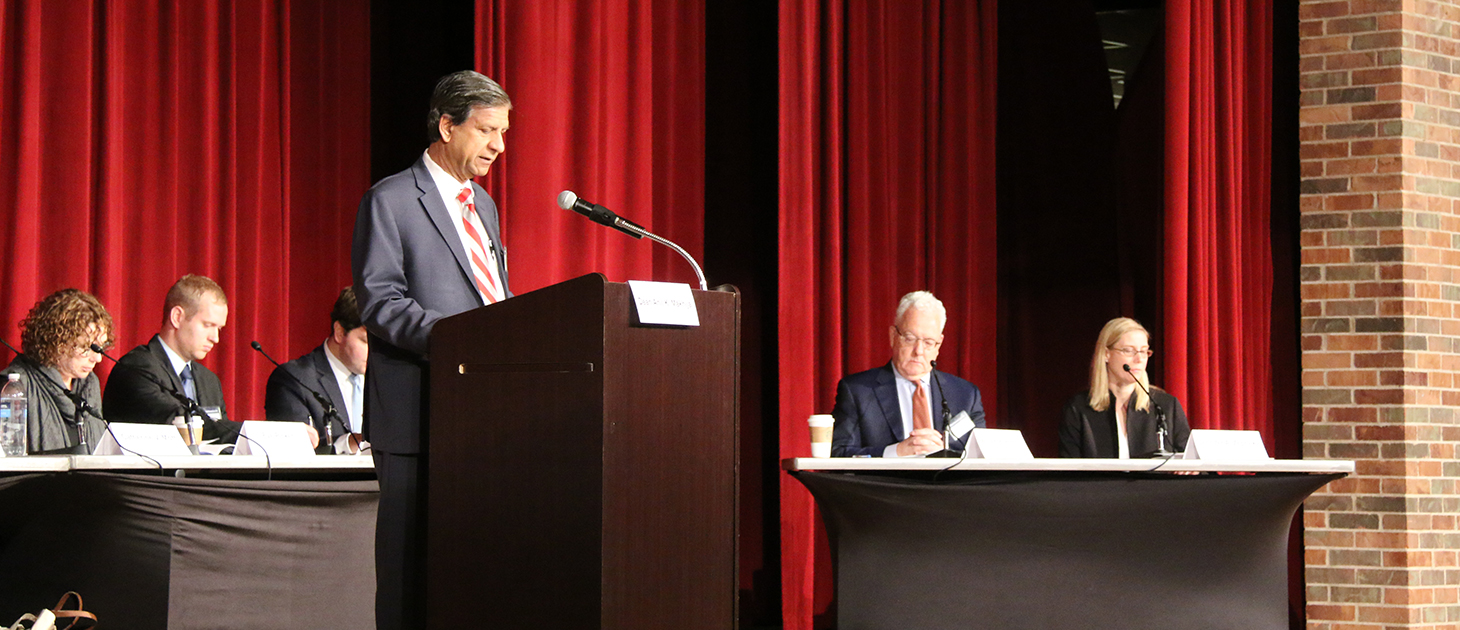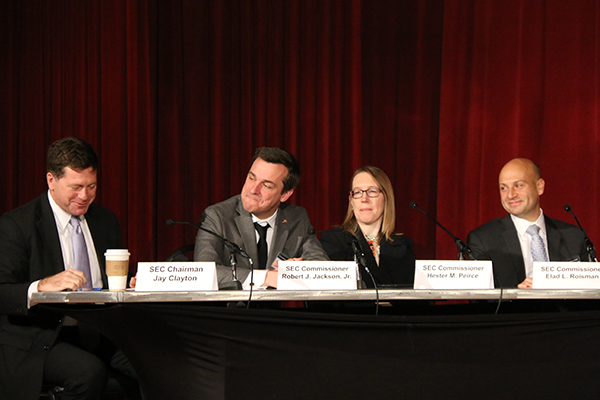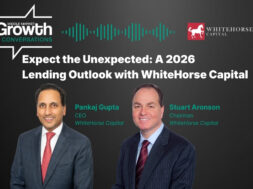SEC Small Business Forum Focuses on Midwest and Minority-Owned Business Hurdles
Business and government leaders gathered at Ohio State's Fisher College of Business to develop recommendations that could inform future regulations.

Despite robust lending and record levels of private equity dry powder, capital is still hard to come by for many small and medium-sized businesses looking to expand.
For businesses located in Midwestern states or those with minority owners, there are even steeper disadvantages when it comes to raising capital, participants told senior members of the Securities and Exchange Commission at the SEC’s 37th Government-Business Forum on Small Business Capital Formation.
“There’s tons of water and there are people who are thirsty,” says Thomas Stewart, the executive director of the National Center for the Middle Market at Ohio State University, which hosted the forum on Dec. 12.
During two panel discussions and multiple interactive breakout sessions, around 200 forum participants from the business, legal and government community around the Midwest developed recommendations for government action to improve the regulatory landscape for small businesses.
Participants included CEOs, lawyers, business development groups, state capital markets regulators, economic development groups, scholars, private equity firms and trade associations who voiced concerns to SEC Chairman Jay Clayton. Also in attendance were commissioners Robert Jackson, Hester Peirce, and Elad Roisman, along with members of their senior staff.
The forum’s panelists discussed challenges faced by small and midsize companies in their search for capital. Chairman Clayton said investors and entrepreneurs have an appetite for small business investment, but much of the investment activity remains highly concentrated on the East, West and Gulf coasts, an assertion supported by data. Of the nearly 5,000 private equity and more than 11,000 venture capital deals in 2018, the majority of activity was concentrated in New York, California, Texas and Florida, according to PitchBook.
That isn’t great news for Midwestern startups and scaleups working in areas like AI and industrial design that often go overlooked, Stewart says. “I heard someone say that on the West Coast there is no doubt somebody is working on an app to deliver avocados by drone. Investors might see an opportunity there, but they might be blind to opportunities here in industrial cities.”
Panelists said regulators could help expand access to capital by revising the definition of an accredited investor. Currently, only individuals with incomes of $200,000 or higher, or a net worth of more than $1 million, are permitted to invest in private equity funds. Yet those dollar amounts come with very different purchasing power for an individual in San Francisco compared with someone in Boise, Idaho, making those criteria imperfect proxies for wealth.
Rather than basing accredited investor status on income, panelists suggested a shift to experience-based qualifications, such as education level or professional expertise in finance. A similar modification was proposed inthe JOBS and Investor Confidence Act of 2018, a bill passed by both the U.S. House of Representatives and Senate. The bill died after the two chambers failed to resolve the differences in their respective versions of the legislation.

“I THINK THIS IS THE OPENING OPPORTUNITY TO BEGIN TO HAVE A CONVERSATION THAT STARTS TO IDENTIFY WHAT THE MIDSIZE BUSINESS CAPITAL FORMATION LANDSCAPE IS LIKE.”
THOMAS STEWART
Executive Director, National Center for the Middle Market
During a second panel at the forum that explored capital formation for businesses, panelists agreed the complex process of raising capital intimidates entrepreneurs, leading to a lack of access to capital markets. They suggested further education is needed to help founders looking for growth capital. Falon Donahue, CEO of entrepreneur-focused nonprofit VentureOhio, added that the Volcker Rule, which restricts banks’ ability to invest in private equity and venture capital funds, has created a bottleneck for venture capital investment in underdeveloped communities.
During the sessions, participants narrowed their list of recommendations to be submitted to the SEC, which the agency must respond to and may use to inform policymaking.
“From my point of view, I think this is the opening opportunity to begin to have a conversation that starts to identify what the midsize business capital formation landscape is like,” Stewart says. “I think we’ve barely begun to scratch the surface on that topic. But the topic is on the table.”
The annual forum was established by congressional mandate in 1982 to provide a platform to draw attention to the difficulties small businesses face when trying to raise capital. For the forum’s first 35 years, it was held in Washington, D.C., but in 2017, it moved outside the capital for the first time to the University of Texas at Austin.
According to statute, the SEC must respond this year to recommendations made by business leaders. A report summarizing the discussion is typically published four to six months after the forum. It will include a recap of the proceedings and a list of the participants’ recommendations to the agency.
This story originally appeared in the March/April print edition of Middle Market Growth magazine. Read the full issue in the archive.

Benjamin Glick is ACG Global’s marketing and communications associate.


